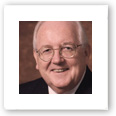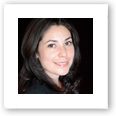 Notre Dame's MNA program enjoys a great history, both in being 57 years old and in having a pool of graduates who have made—and continue to make—stellar contributions to the human community in the United States and beyond. As I reflect on this history, I often ask many "fact" questions, such as how many MNA graduates are there? Where do they live and work? What do they do? How many dollars do they have stewardship over?
Notre Dame's MNA program enjoys a great history, both in being 57 years old and in having a pool of graduates who have made—and continue to make—stellar contributions to the human community in the United States and beyond. As I reflect on this history, I often ask many "fact" questions, such as how many MNA graduates are there? Where do they live and work? What do they do? How many dollars do they have stewardship over?
The answers to these questions speak volumes about the extent and success of the MNA degree. However, the questions that I most treasure are less about facts and more about awareness of our identity. What is the MNA program? Why was it created? And where is it destined? The many possible answers converge in a concise, descriptive mission statement, "the MNA program develops exemplary leaders for nonprofit organizations."
This mission has stood the test of time. It continues to guide and brand—not just the MNA degree, but a long list of innovative and much needed non-degree executive education programs. Many of these have developed in partnership with well-known national networks such as the Volunteers of America or the Hispanic Chamber of Commerce. Now, Notre Dame's Nonprofit Executive Programs (NEP) will be adding an open-enrollment certificate program that will be available to leaders throughout the nonprofit sector, but especially for MNA graduates who want to stay current. (As we develop such opportunities, we will use this e-newsletter to keep you informed. For additional information, contact the NEP Director, Marc Hardy, by email at mhardy@nd.edu.)
This e-newsletter itself, hopefully, will become another tool to serve the mission of the MNA program. It will afford us a regular opportunity to keep our stakeholders informed about educational programs and events, writings, and other resources that can maintain and strengthen the quality of leadership of the MNA network throughout the world.
Now more than ever, we feel the need to stay connected to each other and to the resources that will assure success in the many nonprofit enterprises represented within our graduate constituency. Further, we want the e-newsletter to convey many reasons for you to be proud of our degree and emerging non-degree academic programs, of our commitment to quality, and of our top notch faculty. The newsletter will also let you help us think through some new directions that we are considering. For example, our longtime, popular MNA adjunct Roxanne Spillett will be retiring soon as the president and CEO of Boys and Girls Clubs of America. After retirement at the end of this year, Roxanne has agreed to become a resident fellow at Notre Dame's Nonprofit Professional Development within the Mendoza College of Business, where the MNA and NEP units are now housed. As a resident fellow, Spillett will continue to teach her summer course on Nonprofit Governance and perhaps may add another elective, but also she will serve as a consultant, spokesperson, researcher and networker for the program. The details are still unfolding, but the commitment to work together exists.
On that note, let me officially welcome you to the inaugural edition of MNA Today. Go Irish!


Why I'm Here
In her own words, Dr. Kristen Collett-Schmitt, assistant professional specialist, sums up her first year teaching in Notre Dame's Master of Nonprofit Administration program.
 Teaching in the MNA program . . . has been one of the most fulfilling experiences of my professional career thus far. My students were among the most enthusiastic and inquisitive I have ever taught. Our discussions were both informative and open-minded as we applied often strenuous economic theory to the not-for-profit sector. Economics may be called "the dismal science," but the enthusiasm everyone showed for the class made this relatively new professor feel as if she was actually making a difference in her students' education.
Teaching in the MNA program . . . has been one of the most fulfilling experiences of my professional career thus far. My students were among the most enthusiastic and inquisitive I have ever taught. Our discussions were both informative and open-minded as we applied often strenuous economic theory to the not-for-profit sector. Economics may be called "the dismal science," but the enthusiasm everyone showed for the class made this relatively new professor feel as if she was actually making a difference in her students' education.
My most memorable class was . . . The first day of class because of how quickly my first-day/first-time-teaching nerves diminished as soon as our lecture began. The sense of community that filled the classroom was welcoming, and the amount of discussion that revolved around the pre-course assignment was both impressive and exciting. However, the last day of class was just as memorable. To hear the gratitude of my students for spending time with them, and actually feel a bit saddened that the experience was over so quickly, was certainly not something I expected!
Before starting my course . . . I felt uncertain about how the for-profit subject matter I was used to teaching to my undergraduate students might filter into the MNA classroom. Surprisingly, my students welcomed the for-profit theory. They quickly transformed it into an application that mattered to their careers, which in turn allowed me to expand on the significance of the economic theory. As an economist, I gained new perspective; as an educator, I gained appreciation of the enthusiasm these students had for a subject matter that was once unfamiliar to them.
The one thing I'm NOT is . . . naive to think that all students will or should share in my passion for economics. But the one thing I hope students take from my classroom, based on real-world examples and applications of economic theory, is the recognition that economic decision-making is the foundation of many of our everyday experiences. By integrating deliberate and rational decision-making into our lives, we are one step closer to fighting economic illiteracy.
Dr. Kristen Collett-Schmitt began teaching Economics of the NFP Enterprise for the MNA program in 2011. She came to the University of Notre Dame's Department of Finance in 2008. Prior to coming to Notre Dame, Kristen taught economics as a graduate student for five years at North Carolina State University. Her research interests include microeconomics, law and economics, and economics education.
> MNA Faculty Listing

My Experience So Far
Current MNA student Meredith Regan attempts to explain what makes Notre Dame so special
 There were a lot of things I expected to learn about in the Master in Nonprofit Administration program: leadership, communication, nonprofit number-crunching, among other things. But I never expected that I would walk away from my first summer at Notre Dame knowing so much about otters. Yes, otters. Allow me to explain.
There were a lot of things I expected to learn about in the Master in Nonprofit Administration program: leadership, communication, nonprofit number-crunching, among other things. But I never expected that I would walk away from my first summer at Notre Dame knowing so much about otters. Yes, otters. Allow me to explain.
Shortly after our arrival on campus, our cohort was issued a challenge: before the summer ended we had to name ourselves, our class. The cohorts before us had chosen monikers that evoked collaboration, togetherness, names that spoke to the spirit of the University and what it means to be a part of the MNA community.
Now what would we call ourselves? Less than 24 hours on campus, we didn't yet know much about one another, but one thing was clear: our class had a lot of energy. We all could feel it, and everywhere we went, everyone commented on it. As the weeks went on, this collective energy became the signature of our group in class, in the dorms, studying or socializing, the energy followed.
And, believe me, there was a good deal of energy put into figuring out our class name, but despite a glut of great ideas, nothing really stuck. With only a week left, it was time to get serious. During an impromptu brainstorming session, one of our brilliant classmates pulled up a list of unusual names for groups of animals.
A charm of hummingbirds. A glint of goldfish (who knew?) Over a lot of laughs, we continued through the list: A troop of kangaroos? No, not quite. A grin of opossum? A flamboyance of flamingos? Hmm, almost. A romp of otters?
The Romp. It was playful, it was fun, and it had energy. It was perfect. It was us.
During the admissions processes, I had been told how important my cohort would become throughout my MNA experience—and perhaps even throughout my life. Sure, I was hopeful that this group I'd be spending the next two summers with would be smart and perhaps, if I was lucky, even a bit fun. What I could never have anticipated was exactly how bright, dynamic, and influential each and every member of The Romp would be—in my life, in the classroom, and in their respective communities.
There is a kind of magic to the Notre Dame experience, which I personally think has everything to do with the way the University builds community. I came to South Bend expecting a top-notch academic experience. What I found was a learning environment built on incredible instruction and enhanced by the tremendous insights and experiences assembled through the cohorts. Thanks in no small part to The Romp, I've learned more through the MNA program thus far than I could have imagined. And I'll never think about otters the same way again.

Making an Impact
MNA candidate Yvonne Delgadillo takes her Field Project to the bank
 The capstone assignment for MNA students is a field project whereby they identify a need within their nonprofit employer, then develop a plan to address it. For her field project, Yvonne Delgadillo, executive director of Nogales Community Development (NCD), developed a strategy to secure funding to revitalize downtown Nogales, Ariz.—the core of the rural colonia—while helping its low-income residents build assets to move out of poverty. Delgadillo's project culminated in a grant application that she submitted in February 2011. The following August, the NCD was awarded $1,999,177 in grant funds through the U.S. Department of Housing and Urban Development Rural Innovation Fund—the largest grant the organization has ever received.
The capstone assignment for MNA students is a field project whereby they identify a need within their nonprofit employer, then develop a plan to address it. For her field project, Yvonne Delgadillo, executive director of Nogales Community Development (NCD), developed a strategy to secure funding to revitalize downtown Nogales, Ariz.—the core of the rural colonia—while helping its low-income residents build assets to move out of poverty. Delgadillo's project culminated in a grant application that she submitted in February 2011. The following August, the NCD was awarded $1,999,177 in grant funds through the U.S. Department of Housing and Urban Development Rural Innovation Fund—the largest grant the organization has ever received.
With the funds, NCD will develop a multi-use training and resource center to provide residents with self-sufficiency services and spur revitalization of historic downtown buildings. Second, NCD will provide services including rental housing rehab, foreclosure mitigation, housing counseling and financial literacy, business development, and education, including scholarships for higher education. Other self-sufficiency supports include citizenship classes, developing community gardens, public health education, and access to transportation and child care. Third, NCD will create a comprehensive continuum of services referral system that bundles client housing, business, public health and education services with a program that trains and deploys lay community workers to link residents with services. This project will create at least 100 jobs and rehabilitate 10 housing units. NCD will partner with Mariposa Community Health Center, University of Arizona (Santa Cruz County), Santa Cruz County Provisional Community College Board, Southwest Fair Housing Council, Primeria Alta Historical Society, Nogales Public Housing Authority, and Citi Arizona.


Why I'm Here
MNA candidate Chris White shares his reasons for becoming "Irish"
 In many ways the University of Notre Dame picked me long before I was admitted. I'm not sure when, but some connection was established when I was young and there has been a powerful lure ever since. Pursuing my master's at Notre Dame brings in to alignment the fulfillment of a personal goal with my desire for training in the business of not-for-profits. Given my experience to date, it is hard to imagine having gone anywhere else.
One of the greatest feelings one can experience is the excitement of embarking on a new adventure. From the moment of acceptance to the satisfaction of receiving the first grades and the friendships forged, the MNA program at Notre Dame has exceeded my expectations.
So the big question is what makes this program at Notre Dame so great? Is there one singular strength that sets it apart or is it a function of the total package? Anyone who has had the good fortune of pursuing their MNA at Notre Dame knows it is the total package. It is the confluence of the right people, being in the right place with the right approach.
In many ways the University of Notre Dame picked me long before I was admitted. I'm not sure when, but some connection was established when I was young and there has been a powerful lure ever since. Pursuing my master's at Notre Dame brings in to alignment the fulfillment of a personal goal with my desire for training in the business of not-for-profits. Given my experience to date, it is hard to imagine having gone anywhere else.
One of the greatest feelings one can experience is the excitement of embarking on a new adventure. From the moment of acceptance to the satisfaction of receiving the first grades and the friendships forged, the MNA program at Notre Dame has exceeded my expectations.
So the big question is what makes this program at Notre Dame so great? Is there one singular strength that sets it apart or is it a function of the total package? Anyone who has had the good fortune of pursuing their MNA at Notre Dame knows it is the total package. It is the confluence of the right people, being in the right place with the right approach.
It is hard to imagine meeting a more committed and enthusiastic staff than those in the MNA program. Kim (Brennan) and Vicky (Rodebush) are tremendous communicators. Tom Harvey brings a passion and connectedness that I am sure is rivaled by few. The Mendoza College of Business also has done something that most institutions cannot—it found a group of highly intelligent and engaging educators who bring a pulse and a sense of personal meaning to their respective fields. From our entry into year one with Prof. O'Rourke and Prof. Bretz to those you meet in year two, such as Prof. Collett-Schmitt and Prof. Murphy, you will be challenged and engaged by their diverse approaches and backgrounds. More specifically, you will be supported through their never-ending willingness to help in any way. They are committed to leaving you better than they found you, and they are excited by their students' learning. It is remarkable to experience learning in such an intense, yet meaningful, way, and has brought an energy and enthusiasm to my learning. I always find myself wanting to make them proud.
No less meaningful, however, are the people with whom you share the journey. Left alone with a pen, paper and three minutes, I could name everyone in my class and where they are from. I consider myself blessed and enriched for knowing them and having the chance to learn from them. There are many stories and moments shared that will remain with me forever. Study sessions in the library, group work over dinner, relaxing moments with refreshments, getting stuck in a rain storm and lunch in the Stadium Press Box are all part of what makes it special. We have named our group Ubuntu, meaning "humanity towards others," and for those of you in our Ubuntu reading this I say: Chicken wrap, sherry, utile and brownies. Thank you to you all for the laughs and the learning. I would not want it any other way in any other place.
MNA grads: Do you have a success story you'd like to share? Click here and let us know!



